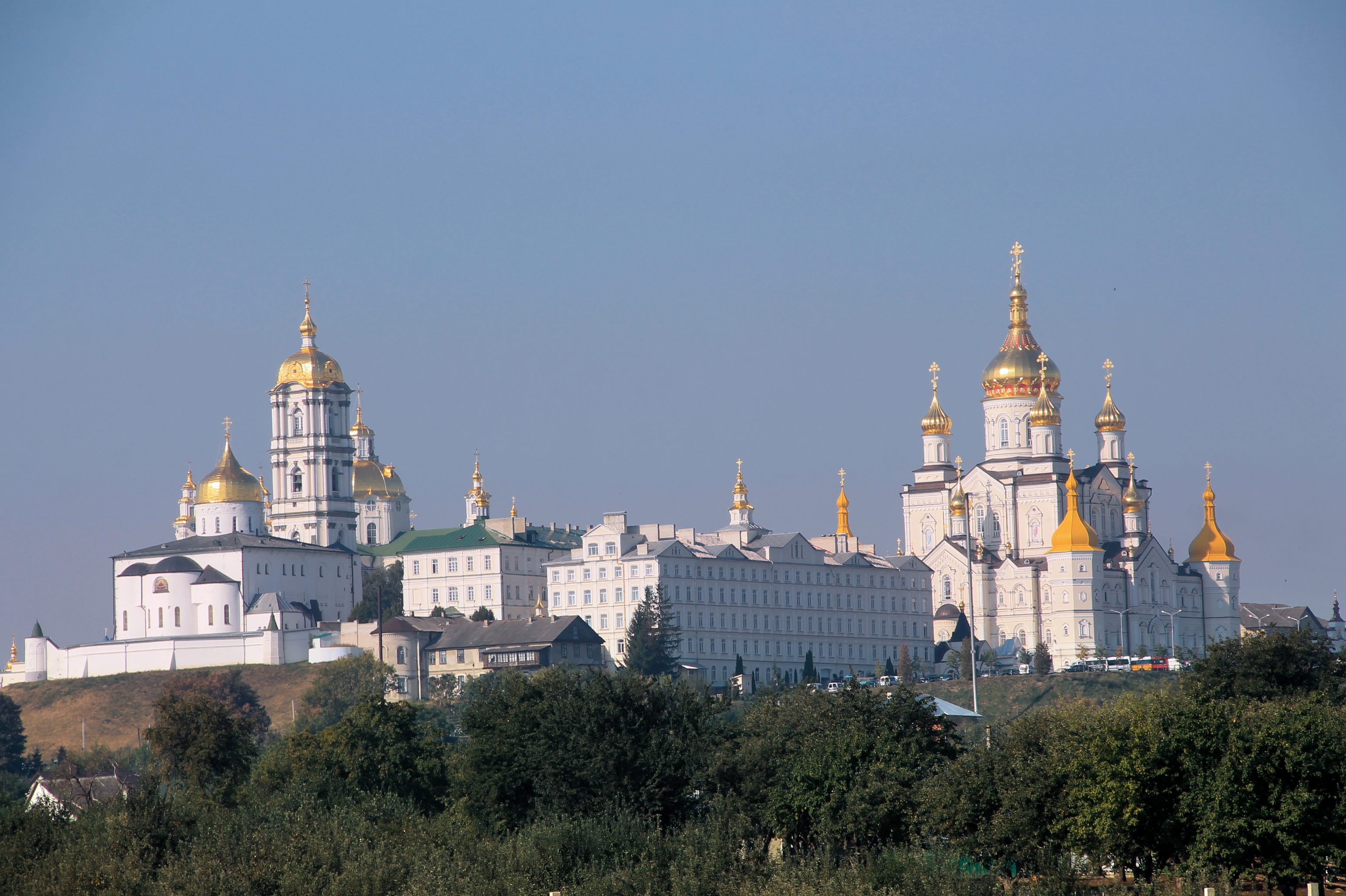The majestic architectural ensemble of the Pochaiv Lavra sits on Kremenets Mountains, dazzling with its golden domes and snow-white walls. Founded by two ascetic hermits in the 14th century, the Orthodox shrine has witnessed many dramatic events and has been steeped in numerous legends.
The Turkish siege and aggression of the Saxon troops, the destructive wars, conflicts between denominations, and antireligious policies have not broken the spiritual strength of the holy center of the Christian faith. Protected by the miraculous Icon of the Mother of God and her Footprint with healing water, the holy relics of Saints Job and Amphilochius, the Lavra continues to fulfill its original mission – to serve as a beacon for all pilgrims seeking spiritual and physical healing, gaining inner joy.
In this article, we will tell you the most interesting facts and legends about the monastery. You can learn more information on our Pochayiv Lavra and Spring of St. Anna Tour.
Icon of the Mother of God Pochaiv
The royal gates of the Church of the Assumption are crowned by the miraculous Pochaiv Icon of the Mother of God. Its star-shaped case is decorated with colorful precious stones.
Greek Metropolitan Ieofit brought the icon to the Volhynia region, and at the end of the 16th century the patroness of the Pochaiv monastery, Hanna Hoyska, gave it to the monastery after the miraculous recovery of her blind brother.
On significant holidays, the Icon is slowly lowered down to the believers, who reverently absorb its gracious warmth and healing power.
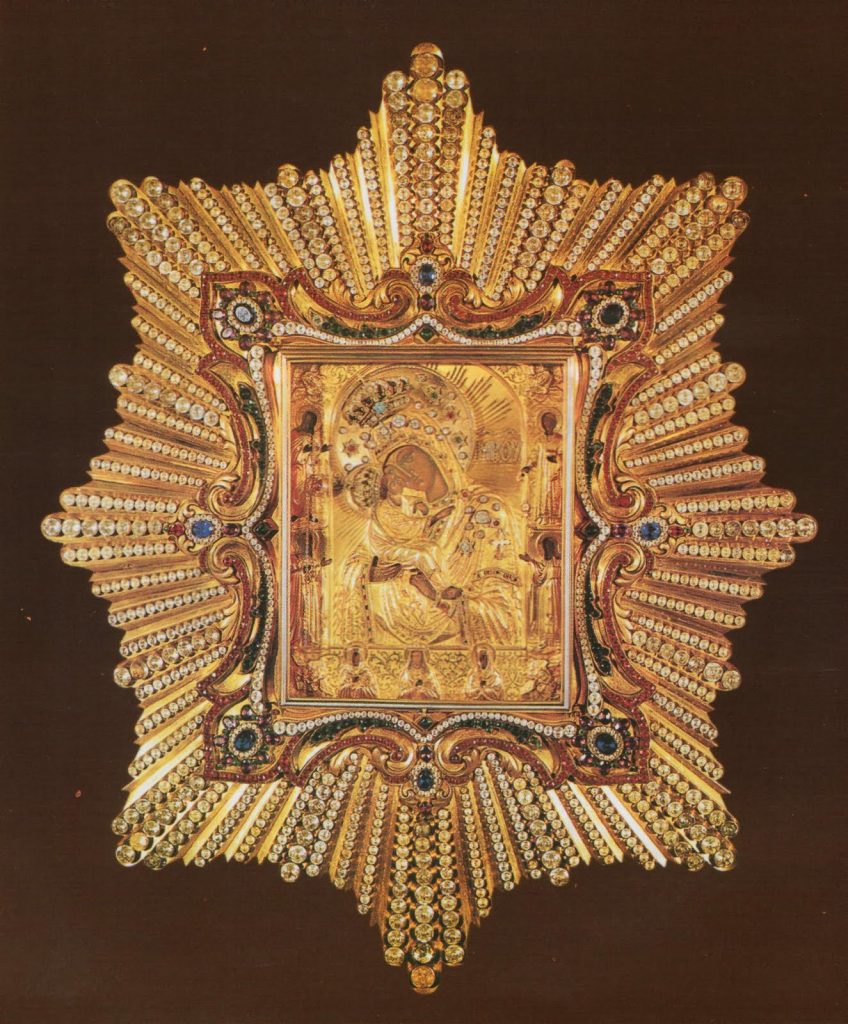
The story of Mikołaj Bazyli Potocki
Mikołaj Bazyli Potocki was a count infamous for his scandalous behavior. The story of his transformation into a virtuous patron and a monk is connected with the miraculous power of the icon of the Mother of God.
Legend has it that once passing by the holy walls, the carriage carrying the count overturned, and in rage, he tried to shoot his coachman. However, the pistol misfired three times after the servant’s ardent prayer to the monastery’s Pochaiv icon.
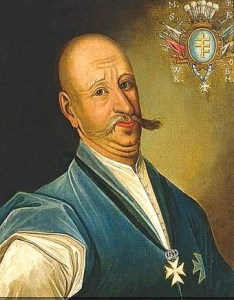
Stunned by a real miracle, Potocki decided to dedicate his further life to the development of the monastery, in particular, the construction of the majestic Church of the Assumption and the coronation of the miraculous icon. Shortly before his death, count Potocki became a monk. His life ended in a small house near the Lavra.
Amphilochius of Pochayiv
The tomb of Amphilochius of Pochayiv, who during his life was known far beyond the monastery due to the ability of physical and spiritual healing and was canonized in the early 21st century, is located in one of the cave cells of the Lavra.
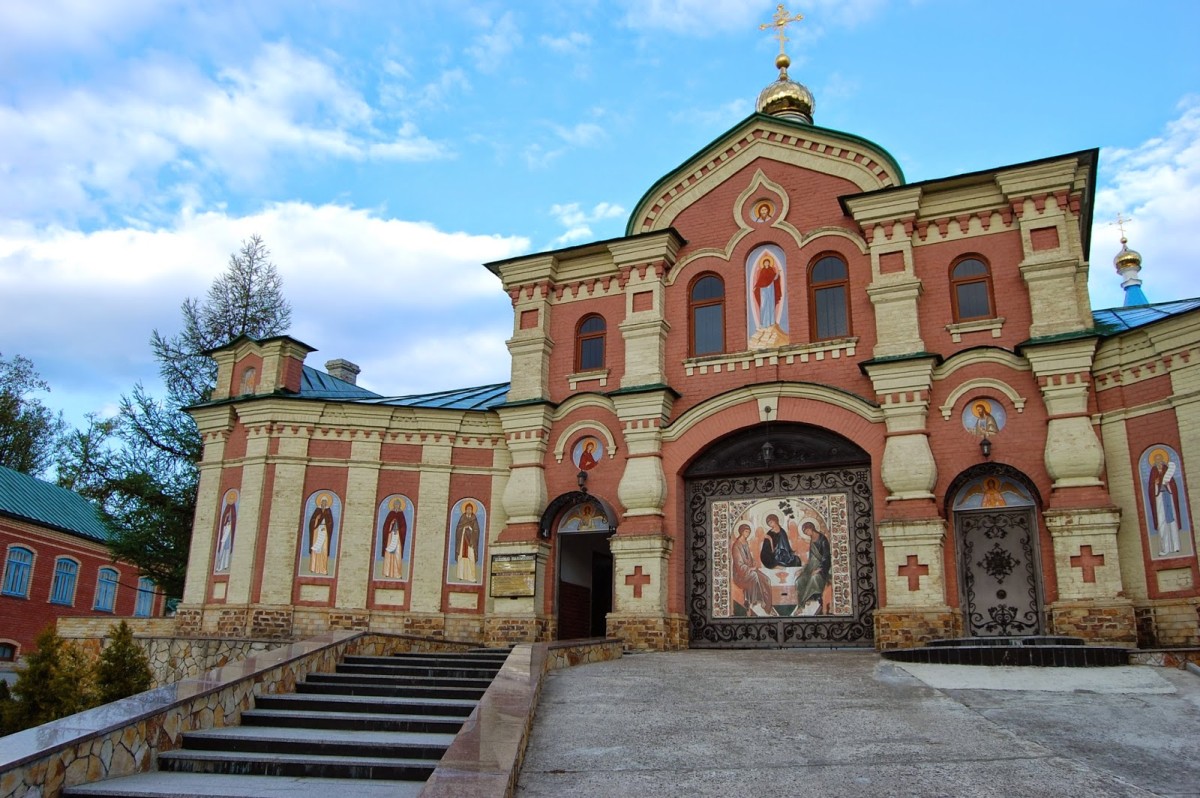
A true folk healer helped Ukrainian Insurgent Army soldiers and thousands of ordinary people, despite the persecution by the authorities in the frightening times of Soviet atheism. Thirty years after the burial, his body was exhumed intact and placed for worship in the cave Church of St. Job of Pochaiv.
Pchayiv Lavra – an outstanding architecture and art monument
The architectural ensemble of the monastery was designed by the famous architect Jan Gottfried Hoffman, who skillfully integrated the picturesque stone terraces into the construction.
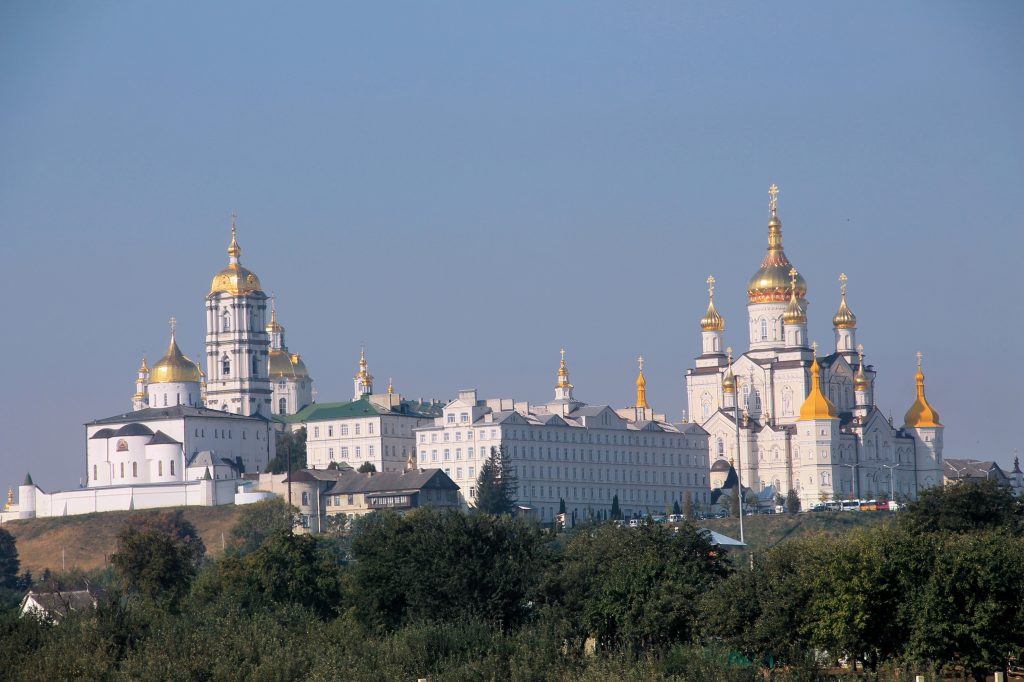
The delicate silhouette of the Assumption Cathedral, the main element of the ensemble with round holes in the ceilings of the side corridors, impresses with a magical play of light and shadows. Its gilded domes are directed to the blue sky as if symbolizing unity with the Almighty. Famous artists of the 19th century took part in decorating the cathedral.
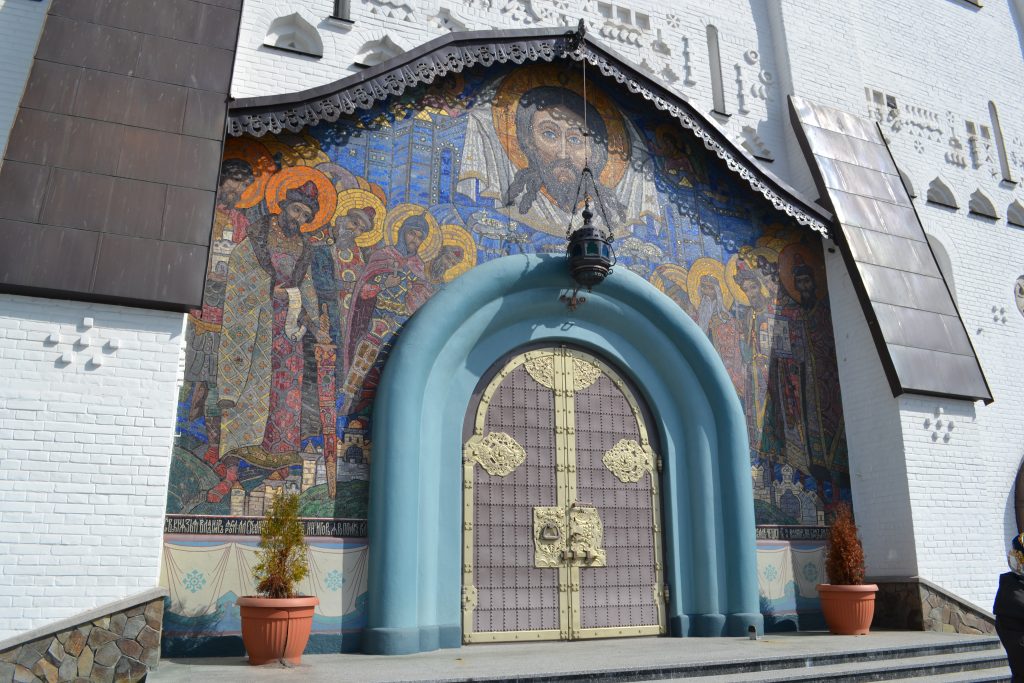
One of the important buildings of the Lavra is the Holy Trinity Cathedral, built in the early twentieth century by the architect Alexey Shchusev, who, ironically, later designed the mausoleum of Lenin.
The sketches of mosaics that decorate the church were done by the famous artist Nicholas Roerich, later excommunicated.
The Holy Dormition Pochayiv Lavra consists of the following buildings:
- Holy Dormition Cathedral (1771-82, architect Jan Gottfried Hoffman)
- Trinity Cathedral (1906-12, architect Alexey Shchusev)
- cells (1771-80)
- Bishop’s House (1825)
- bell tower (1861-69)
- gatehouse (1835)
7 interesting facts
1. Taras Shevchenko, a famous Ukrainian poet, painted Pochayiv landscapes impressed by the beauty of Pochayiv Lavra;
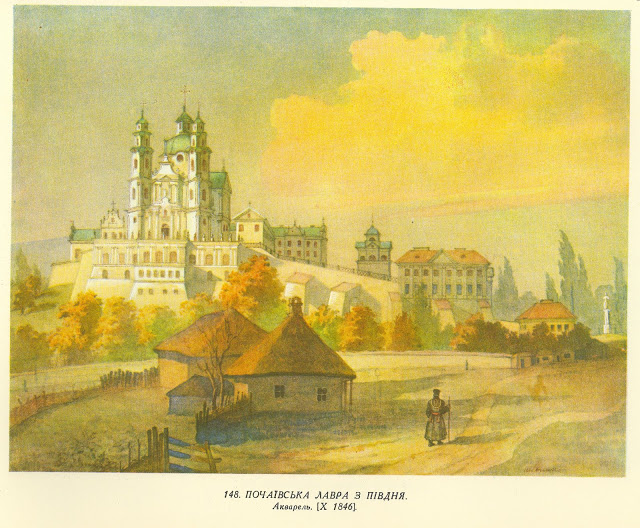
2. Nicholas II called Pochayiv’s picturesque landscapes “Ukrainian Switzerland”
3. Famous Ukrainian engravers Adam and Joseph Gochemsky worked in the monastery printing house;
4. Many famous personalities, including philosopher Skovoroda and writer Prokopovych, visited the Pochayiv monastery;
5. The Lavra is proud of the third-highest bell tower in Ukraine (65 m);
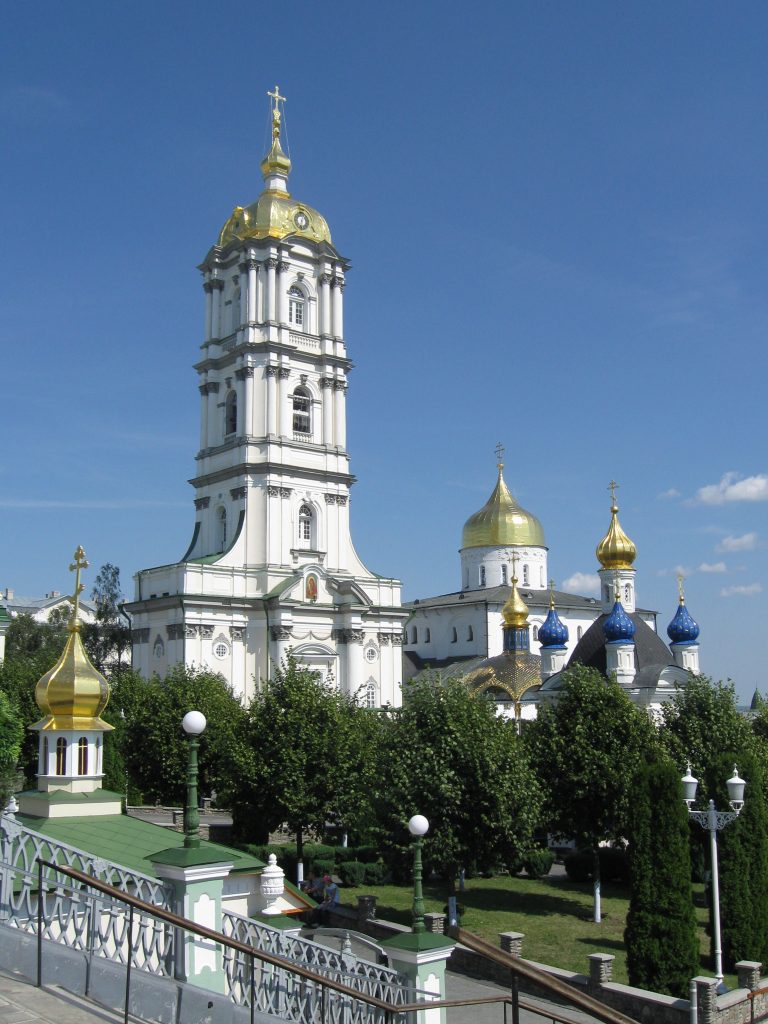
6. The monastery has 13 bells, 2 of which are clock bells;
7. Not far from Pochayiv there is St. Anna’s Spring. Its healing waters help to cure infertility.
Spring of St. Anna
Since the sixteenth century. people believed in the healing properties of this spring. And rightly so, because laboratory tests detected a large number of elements of silver and flint that heal the body in its waters.
In particular, spring water can lower blood sugar, normalize liver and kidney function, provide better metabolism, and, according to a legend, even treats infertility.
How to get to Pochayiv Lavra
There are several ways to reach Pochayiv Lavra from Lviv. A trip by car would take you under 3 hours.
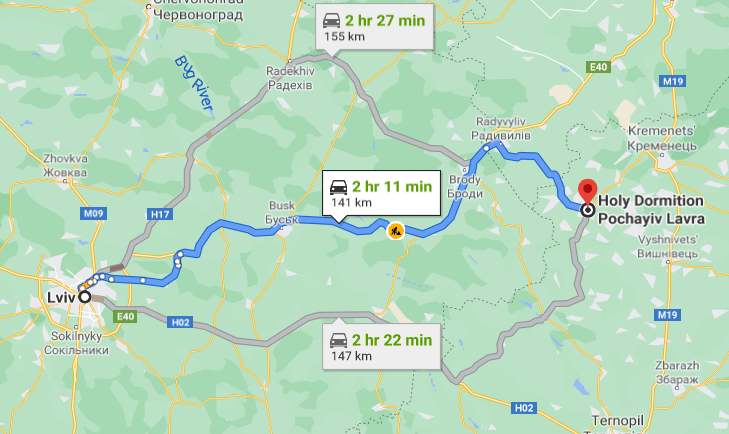
If you do not have a car or don’t wish to use it, you can get there by public transport. But this option is not easy, because buses do not travel so often and in the warm season it is difficult to travel. You can also get to Radyvyliv or Zborov by train and then change to a bus.
Alternatively, you can use the services of travel agencies. They will not only take you to your destination but also tell you a lot of interesting and new things.
Additional information
Contacts: (03546)-61218
GPS: 50.005406, 25.508196
Location: Pochayiv, Ternopil Oblast’, 47026
We invite you to participate in our Pochayiv Lavra and Spring of St. Anna Tour where you can not only see the holy places but also get spiritual inspiration.

